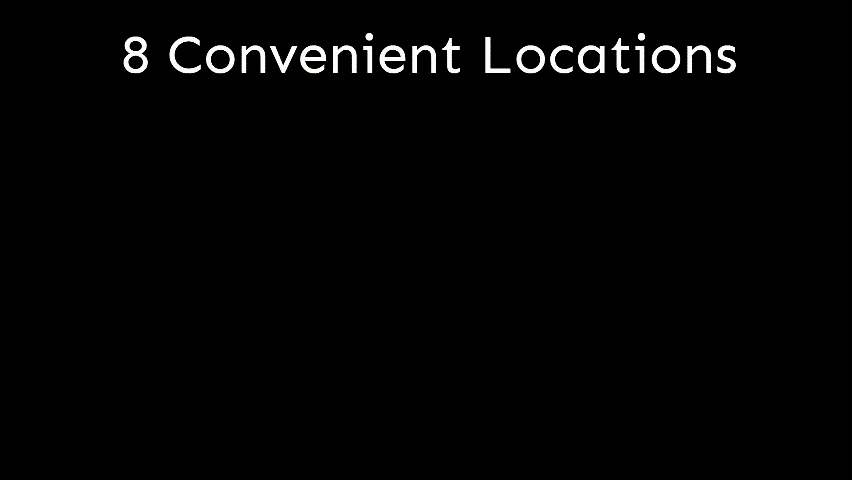Compressed gas cylinders are built to handle high internal pressure—but they don’t last forever. Over time, cylinders can develop stress cracks, corrosion, thread wear, or metal fatigue that make them unsafe to fill or use. That’s why federal DOT regulations require all high-pressure cylinders to be periodically inspected and recertified through hydrostatic testing. At Dupuy Oxygen, we supply and exchange certified cylinders across Central Texas—and we make sure every cylinder you receive meets all recertification requirements for safe, legal operation.
What Is Hydrostatic Testing?
Hydrostatic testing is a destructive-free method of testing cylinder integrity. During the test, a cylinder is filled with water (or another incompressible liquid) and pressurized to a level higher than its normal service pressure. The expansion of the cylinder is measured to determine whether it retains its structural integrity under stress. If the cylinder meets the required criteria, it is marked and certified for continued use. If not, it is condemned and permanently removed from circulation.
Who Regulates Cylinder Testing?
In the United States, cylinder testing and recertification is regulated by the Department of Transportation (DOT), specifically under Federal Regulation 49 CFR 180.205. Any cylinder that contains compressed gas—including welding gases, CO₂, nitrogen, oxygen, argon, or specialty gases—must comply. Cylinders must be tested at regular intervals depending on type, material, and service pressure.
Cylinder Testing Intervals
Different cylinder types have different recertification schedules. Here are the most common intervals used by Texas welders, industrial plants, and beverage facilities:
-
Standard Steel Cylinders (e.g., oxygen, nitrogen, argon): Every 5 years
-
Aluminum Cylinders: Every 5 years (unless marked with special exemptions)
-
CO₂ Beverage Cylinders: Every 5 years
-
SCBA or SCUBA Cylinders: 5 years (composite may be 3)
-
DOT carbon fiber composite cylinders: 3-year cycle, 15-year lifespan
Cylinders that miss their hydrostatic test due date cannot legally be refilled until recertified. DOT fines can apply to companies that transport or fill expired cylinders.
How to Read Cylinder Markings
Every cylinder has a stamped set of markings that indicate manufacturer, pressure rating, gas compatibility, and last test date. The hydrostatic test date appears as a month-year mark (e.g., "06 23" = June 2023). If a + or ★ symbol is present, it means the cylinder is authorized for bonus pressure rating or extended test interval. Cylinder markings must remain legible—otherwise, the cylinder may be condemned.
What Happens During Recertification
A full hydrostatic test and recertification includes:
-
External Visual Inspection – Checking for dents, gouges, rust, heat marks, fire damage, or thread issues
-
Internal Inspection (when required) – Detecting corrosion, pitting, or contamination
-
Hydrostatic Pressure Test – Measuring elastic expansion at 5/3 of service pressure
-
Stamping Test Date – Marking the cylinder with new expiration period
-
Repainting/Reconditioning – If needed, for safety labeling and corrosion resistance
If a cylinder fails any part of the test, it is removed from service and must be destroyed according to DOT guidelines.
What Texas Shops Need to Know About Compliance
If your business owns cylinders, you are responsible for ensuring they are in test—even if you're not a refill facility. If you lease or exchange cylinders from Dupuy Oxygen, you’re covered. But if you own your own tanks, such as for bulk nitrogen or industrial oxygen, you must have a plan for ongoing recertification. Key rules include:
-
No filling expired cylinders
-
No transporting expired cylinders on public roads
-
No sanding, painting over markings, or removing serial numbers
-
No “homemade repairs” or valve swapping without certification
Violation of these rules may result in OSHA citations, DOT penalties, and insurance liability exposure.
Industrial Users at Highest Risk of Noncompliance
We routinely see overdue cylinders in the following types of businesses:
-
Small fabrication shops that own cylinders instead of swapping them
-
HVAC or plumbing contractors storing cylinders for months or years
-
Schools and trade programs using inherited or donated cylinders
-
Beverage accounts using unlabeled or outdated CO₂ cylinders
-
Companies with mixed ownership/rental cylinder inventory
If you're unsure of your compliance status, Dupuy Oxygen can audit your cylinder fleet and manage retesting.
Benefits of Using an Exchange Program Instead of Owning Tanks
Owning cylinders means you are responsible for storage, valve care, hydrotesting, replacement, and DOT compliance. When you participate in a cylinder exchange program (such as Dupuy Oxygen’s), you eliminate:
-
Recertification scheduling
-
DOT documentation
-
Failed cylinder replacement costs
-
Tracking and test-date oversight
When you return a cylinder to us, we take full responsibility for retesting, refurbishing, and legal compliance—so you never have an expired tank in circulation.
What Happens If a Cylinder Fails Hydrostatic Testing?
Failed cylinders must be:
-
Condemned and visibly stamped “REJECTED” or “COND"
-
Rendered permanently unusable—typically cut or drilled
-
Recorded in the testing facility’s DOT log
They may not be resold, reused, or repurposed (even as air tanks) unless repaired and retested by a DOT-authorized facility.
Why Shops in Central Texas Choose Dupuy Oxygen
As one of Texas’ most experienced industrial gas suppliers, Dupuy Oxygen offers:
-
Fully DOT-certified cylinders in every exchange
-
Automatic test date compliance for route customers
-
Cylinder fleet audits for industrial operations
-
Hydrotest outsourcing for customer-owned cylinders
-
Delivery, pickup, and full-service tracking
We ensure every cylinder you receive is safe, legal, and ready to fill—and we handle the paperwork, inspection, and liability so you don’t have to.
Need Help Staying Cylinder-Compliant?
Whether you’re running a welding shop, brewery, hospital, food plant, or industrial site, cylinder safety and recertification are non-negotiable.
Contact Dupuy Oxygen today for cylinder exchange plans, hydrostatic testing schedules, or a full gas compliance audit anywhere in Central Texas.


